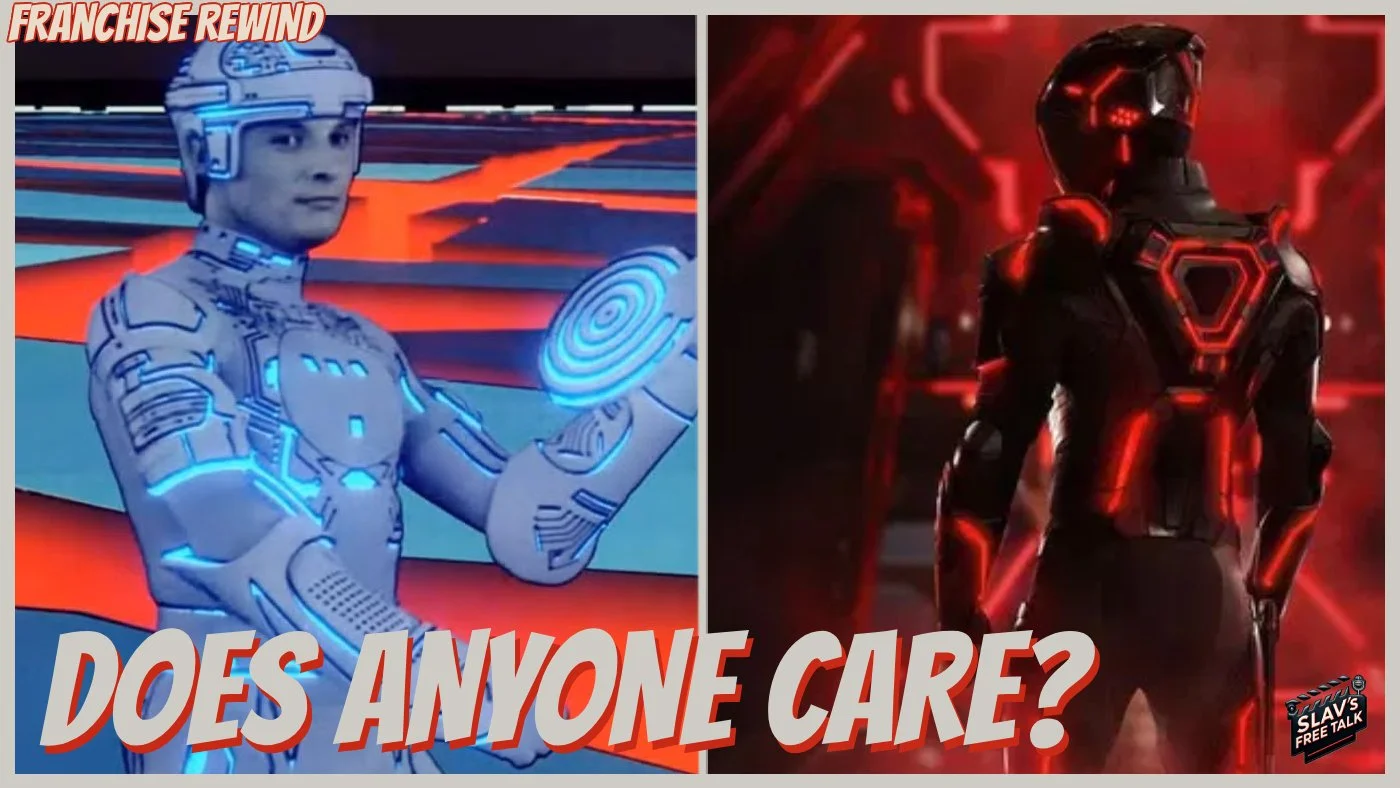Tron (1982) vs. Tron: Ares — Will Anyone Care?
When Tron first hit theaters in 1982, it was both ahead of its time and a victim of its moment.
The movie was visually groundbreaking, pioneering early CGI and neon soaked digital landscapes that would later influence everything from The Matrix to Ready Player One. But while its visuals stunned, its storytelling struggled.
Tron was often cold and mechanical, more admired for its ambition than loved for its characters. It became a cult classic, revered by tech enthusiasts and filmmakers, but never truly embraced by the mainstream.
What still holds up today is the sheer audacity of its vision. Tron imagined life inside a computer decades before the digital revolution.
The design… the glowing suits, the light cycles, the towering Recognizers, remains iconic, still referenced across pop culture.
Yet, the movie’s flaws are just as glaring. The narrative is thin, its pacing clunky, and its characters underdeveloped. Strip away the 80’s visuals, and there isn’t much story to keep you invested.
Still, the film’s influence is undeniable. Without Tron, there’s no cyberpunk boom, no digital dreamscapes, no mainstream fascination with the idea of virtual worlds.
It truly laid groundwork for everything from Ghost in the Shell to The Matrix, and it gave Disney one of its most recognizable cult properties. That influence alone has kept the franchise alive through spin offs, video games, Tron: Legacy (2010), and now Tron: Ares (2025).
But here’s the question… does anyone care about Tron anymore?
Tron: Legacy had sleek visuals, Daft Punk’s killer soundtrack, and a genuinely ambitious attempt to modernize the franchise. Yet, it barely broke even at the box office and left audiences divided… perhaps some dazzled with others underwhelmed.
The cult fans loved it, but it never crossed over into cultural dominance the way Marvel or Star Wars did. That’s the core problem Disney faces with Tron: Ares.
Can Ares do better than its predecessors?
Potentially. The tech has caught up to the vision, and audiences are more familiar than ever with VR, AI, and digital worlds. Conceptually, Tron fits perfectly into today’s conversations about technology. But unless the film grounds its spectacle with strong characters and a compelling story, it risks repeating history… all style, no substance.
Visuals alone won’t cut it in an era where audiences expect emotional depth from even their blockbuster franchises.
In the end, Tron: Ares doesn’t just have to live up to the legacy of Tron… it has to prove the franchise matters at all in 2025.
Does the general audience care about returning to the Grid? Or is Tron destined to remain a niche series, adored by cult fans but ignored by the mainstream?
The film’s success will come down to whether Disney can finally crack the code… make Tron not just visionary, but vital.


